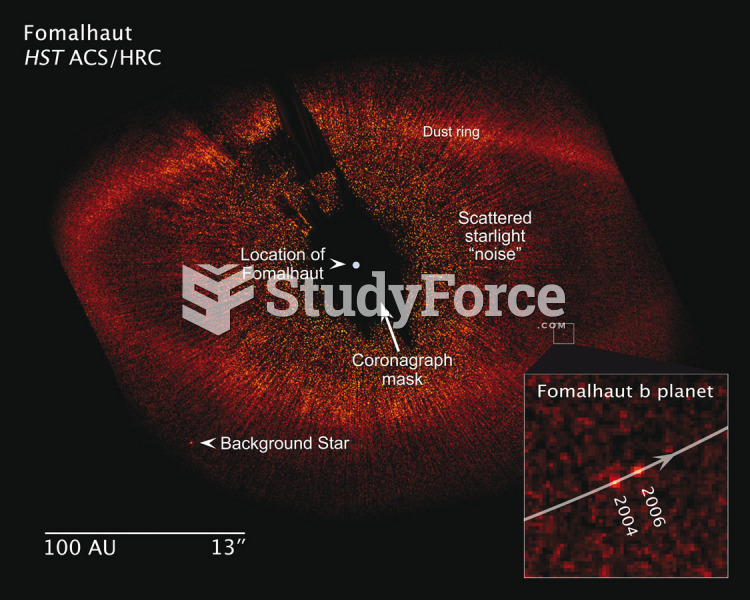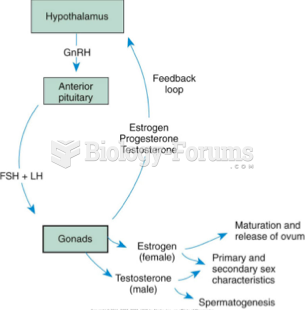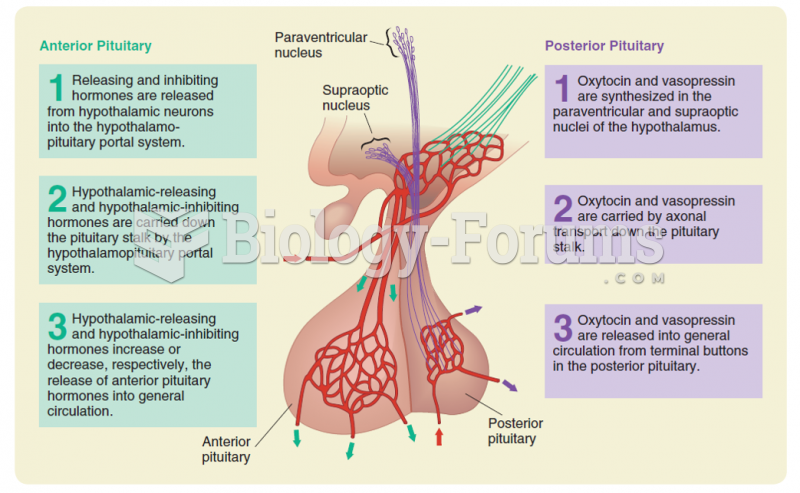Answer to Question 1
Correct Answer: 1,2,3,4
Rationale 1: Emotional states associated with this connection include euphoria.
Rationale 2: Emotional states associated with this connection include aggression.
Rationale 3: Emotional states associated with this connection include anger.
Rationale 4: Emotional states associated with this connection include sexual drive.
Rationale 5: Fatigue is not an emotional state.
Global Rationale: Emotional states associated with this connection include euphoria, aggression, anger, and the sexual drive. Fatigue is not an emotional state.
Answer to Question 2
Correct Answer: 3
Rationale 1: Social anxiety disorder is an unreasonable and persistent fear of crowds or of being ridiculed or embarrassed in public. Panic attacks can occur when the person encounters his phobia.
Rationale 2: Generalized anxiety disorder (GAD) is excessive anxiety that persists for six months or longer. The characteristic feature of GAD is excessive worry or fear regarding life events or activities.
Rationale 3: Panic disorder is a type of anxiety characterized by intense feelings of immediate apprehension, fearfulness, terror, or impending doom, accompanied by increased autonomic nervous system activity such as sweating, racing heart rate, shortness of breath, and trembling. The client must experience at least 1 month of ongoing concern or worry.
Rationale 4: Obsessive-compulsive disorder (OCD) involves recurrent, intrusive thoughts or repetitive behaviors. To be diagnosed with OCD, the behavior or thought must occupy more than 1 hour each day and negatively impact the client's normal daily activities or relationships.
Global Rationale: Panic disorder is a type of anxiety characterized by intense feelings of immediate apprehension, fearfulness, terror, or impending doom, accompanied by increased autonomic nervous system activity such as sweating, racing heart rate, shortness of breath, and trembling. The client must experience at least 1 month of ongoing concern or worry. Social anxiety disorder is an unreasonable and persistent fear of crowds or of being ridiculed or embarrassed in public. Panic attacks can occur when the person encounters his phobia. Generalized anxiety disorder (GAD) is excessive anxiety that persists for six months or longer. The characteristic feature of GAD is excessive worry or fear regarding life events or activities. Obsessive-compulsive disorder (OCD) involves recurrent, intrusive thoughts or repetitive behaviors. To be diagnosed with OCD, the behavior or thought must occupy more than 1 hour each day and negatively impact the client's normal daily activities or relationships.







